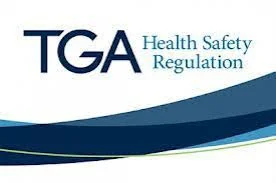In the medical industry, ensuring the safety and efficacy of products is of utmost importance. One crucial aspect of this is obtaining the necessary certifications and approvals to demonstrate compliance with regulatory standards. The Therapeutic Goods Administration (TGA) certification is one such essential requirement for medical products in Australia. In this article, we will explore the importance of TGA certification in the medical industry.
What is TGA Certification?
The Therapeutic Goods Administration (TGA) is the regulatory body responsible for regulating therapeutic goods in Australia. TGA certification is a rigorous process that involves assessing the safety, quality, and effectiveness of medical products. It ensures that products meet the necessary standards before they can be marketed or sold in Australia.

Importance of TGA Certification
1.Ensures Product Safety
TGA certification plays a vital role in ensuring the safety of medical products. The certification process involves a thorough evaluation of the product's ingredients, manufacturing processes, and quality control measures. This assessment helps identify any potential risks or hazards associated with the product and ensures that appropriate measures are in place to mitigate them. By obtaining TGA certification, manufacturers demonstrate their commitment to producing safe and reliable medical products.
2.Demonstrates Product Quality
TGA certification also serves as a mark of product quality. The certification process includes a review of the manufacturing facilities, equipment, and processes used to produce the medical product. It ensures that the product is manufactured in compliance with Good Manufacturing Practice (GMP) guidelines, which are essential for maintaining product quality and consistency. By obtaining TGA certification, manufacturers assure healthcare professionals and consumers that their products are of high quality and meet the necessary standards.
3.Enhances Product Credibility
TGA certification adds credibility to medical products. It signifies that the product has undergone a rigorous evaluation by a reputable regulatory body. This certification is recognized and trusted by healthcare professionals, regulatory authorities, and consumers alike. By obtaining TGA certification, manufacturers can differentiate their products from competitors and build trust with their target audience. It also allows healthcare professionals to confidently recommend and prescribe TGA-certified products to their patients.
4.Facilitates Market Access
TGA certification is a mandatory requirement for medical products intending to enter the Australian market. Without TGA certification, manufacturers cannot legally market or sell their products in Australia. By obtaining TGA certification, manufacturers gain access to a significant market and can tap into the potential opportunities that the Australian healthcare system offers. This certification allows manufacturers to expand their reach, increase sales, and establish a presence in the Australian medical industry.
5.Regulatory Compliance
Complying with regulatory requirements is crucial for manufacturers in the medical industry. TGA certification ensures that manufacturers adhere to the regulations set forth by the TGA. It helps manufacturers navigate the complex regulatory landscape, understand their obligations, and meet the necessary standards. By obtaining TGA certification, manufacturers demonstrate their commitment to regulatory compliance and avoid potential legal and reputational risks associated with non-compliance.

The TGA Certification Process
The TGA certification process involves several stages, including:
1.Application Submission: Manufacturers submit an application to the TGA, providing all the necessary information and supporting documentation related to the medical product.
2.Product Evaluation: The TGA evaluates the product's safety, quality, and effectiveness based on the submitted information. This evaluation may involve reviewing clinical data, conducting laboratory tests, and inspecting manufacturing facilities.
3.Compliance Assessment: The TGA assesses whether the product meets the necessary regulatory requirements and complies with GMP guidelines. This assessment ensures that the product is manufactured and labeled correctly, and that appropriate quality control measures are in place.
4.Approval and Certification: If the product meets all the requirements, the TGA grants approval and issues a TGA certificate. This certification allows the manufacturer to market and sell the product in Australia.
Conclusion
TGA certification is of paramount importance in the medical industry. It ensures the safety, quality, and efficacy of medical products in Australia. By obtaining TGA certification, manufacturers demonstrate their commitment to meeting regulatory standards and provide healthcare professionals and consumers with confidence in their products. TGA certification enhances product credibility, facilitates market access, and ensures compliance with regulatory requirements. It is a valuable asset for manufacturers seeking to establish a strong presence in the Australian medical industry.

